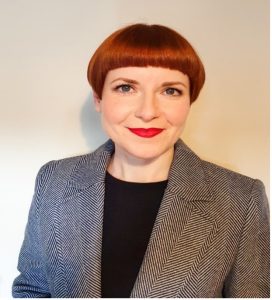
Hear from the Phase Two Co-Chairs
31.03.2022
This next phase of the First Minister’s National Advisory Council on Women and Girls launches in a very different landscape from the inception of this work.
As such, it is right that the focus of phase two is on ensuring that our recommendations deliver meaningful change for women who need it the most, not simply remain as ideas in a report.
We continue to make our way through a global pandemic which has exacerbated inequalities for already marginalised women and girls, particularly for those who are from Black, Asian and Minority Ethnic communities, lesbian, bisexual and trans women, disabled women, unpaid carers, those on low or no-income, migrant women, single-parents and critically, the majority of women who exist across a number of these intersections.

Talat Yaqoob FRSE – Phase Two Co-Chair
Often when working groups, advisory councils or committees are formed they follow the same pattern; they consult, they research, they deliberate and then provide recommendations. After this point they can be disbanded on the assumption that actions will be delivered and progress made. However, recommendations can sometimes be side-lined, deprioritised or not implemented as the working group or committee envisaged. Rather than simply producing recommendations and moving on, we want to do things differently and, hopefully, more effectively.
The focus of phase two of the NACWG will be on accountability, implementation and participation, to ensure the delivery of our recommendations in a way that not only shapes policy development but also influences the system as a whole.

Anna Ritchie Allan – Phase Two Co-Chair
Find out more about all Phase Two members.
ACCOUNTABILITY:
The council membership will be formed of those who have experience of pursuing gender equality across different areas, knowledge of policy delivery, and skills and experience around Government scrutiny.
Their role will be to investigate, analyse and challenge in order to realise the ambitions of the NACWG recommendations. They will also be assessing whether there is coherence across Government on commitments to tackle gender inequality and whether women who experience multiple and compounding inequalities are being fully considered (we often refer to this as intersectional analysis).
IMPLEMENTATION:
In phase one, 1300 organisations and individuals joined the NACWG Circle, demonstrating a clear interest in how gender equality can be realised. In phase two, we want to build on this work by moving from talking to doing. We’ll be asking existing Circle members, and others who would like to join, to take further action on tackling women and girls’ inequality in their own organisations, groups and communities.
They will be asked to provide information on the work they are doing so that good practice can be shared, and they will be asked to tell us how they can be supported to do more, and better.
PARTICIPATION:
We do not want this work to be only influenced by the same people who have some access to power in Scotland. That is why the NACWG will include a lived expertise panel who will have an equal role in scrutinising recommendations and informing delivery. This group will be made up of women and girls who are too often ignored in decision making and do not have access to influence.
The NACWG’s work to raise awareness through digital media and engaging those who have participated in events over the first three years will continue. We will publish reports and briefings providing an assessment of whether the Scottish Government is delivering the NACWG recommendations, and we look forward to your engagement with these.
Most importantly, we look forward to pursuing genuine challenge and accountability of Government to advance equality for women and girls in Scotland.